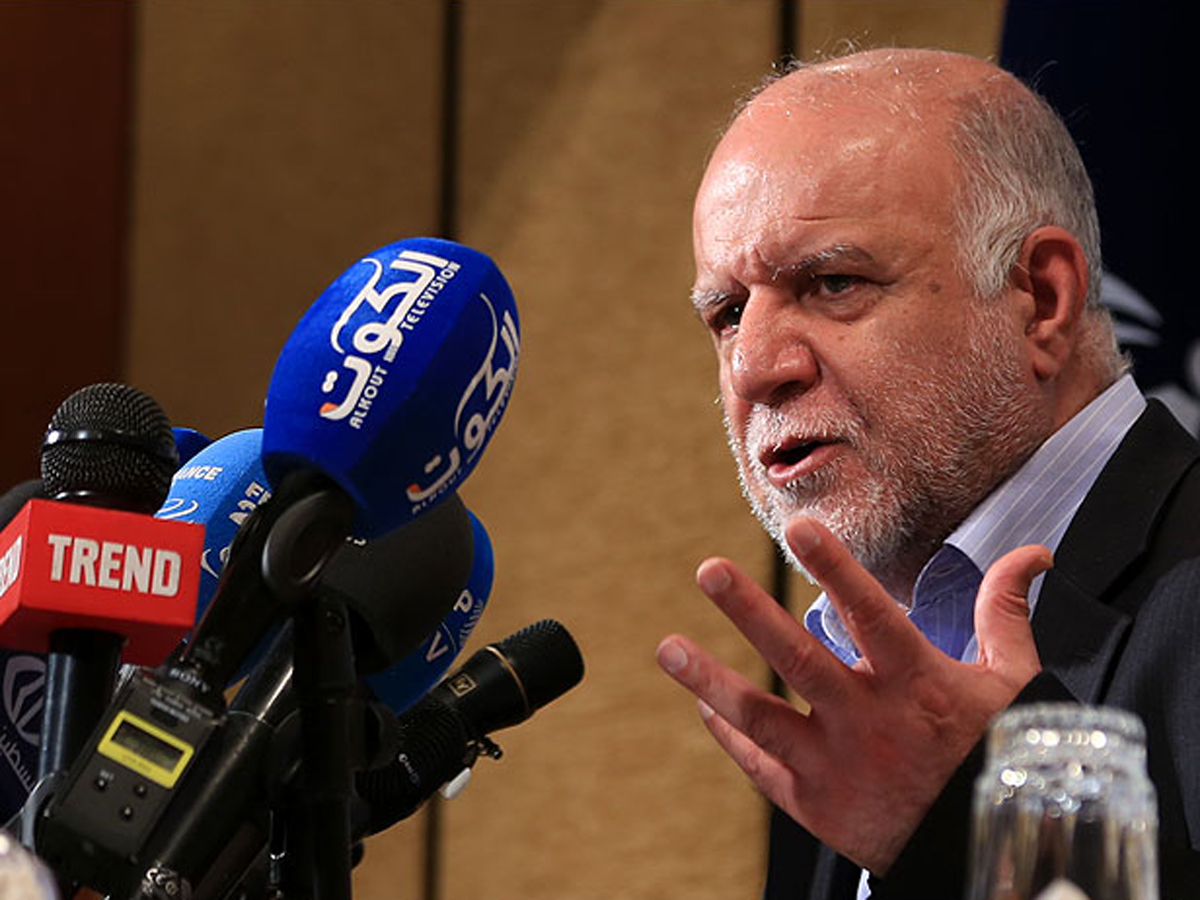Tehran, Iran, Nov. 17
By Mehdi Sepahvand- Trend:
Iran's Oil Minister Bijan Zanganeh said next week's Gas Exporting Countries Forum (GECF) to be held in Tehran will see nine heads of state in attendance, adding that this record number would "make a good start."
The third summit of the GECF will kick off on Nov. 23, with its 18 main and observer members, Zanganeh told a press conference held in Tehran on Nov. 17.
The Iranian oil minister will chair the extraordinary general meeting of the members, while the ordinary meeting will be headed by the newly appointed oil minister of Nigeria.
Zanganeh noted that the participation of the leaders of Russia, Iraq, Bolivia, Nigeria, Equatorial Guinea, and Venezuela had been confirmed and that the Turkmenistan president would attend the Summit as a special guest.
Iran, Russia, Algeria, the United Arab Emirates, Venezuela, Qatar, Egypt, Bolivia, Libya, Equatorial Guinea, Nigeria, and Trinidad and Tobago are members of the forum, while the Netherlands, Kazakhstan, Peru, Iraq, Oman, and Norway hold the status of observers.
The members of the forum account for 42 percent of the world's gas output, 70 percent of the world's gas reserves, 40 percent of piped gas transmission, and 65 percent of global trade in liquefied natural gas.
The theme for this year's GECF summit is "Promoting Technologies for Sustainable Environmental Management."
The GECF was established in 2001 in Tehran and is a venue for a number of the world's gas exporting countries to exchange information about relevant topics.
"The GECF enables cooperation among rivals who have seen the wisdom in working together for their shared interests," Iran's oil minister stated.
Zanganeh said the GECF was finding more and more prospects for success as single shipments of gas are becoming the norm.
The GECF has drafted a model for demand and supply, he remarked.
He pointed out that the most lucrative gas export for Iran is one destined for nearby places.
"Therefore, we are willing to send gas to Iraq, for which contracts are in place to export gas via Naftshahr and Basra, at a total volume of 50 mcm/d . We can even send gas to Afghanistan and the Persian Gulf littoral countries," Zanganeh stressed, noting that Iran was the only country in the region with the ability to make plans on the export of gas.
Turkmenistan, with which Iran exchanges gas, is another regional player, and it will make a good market for Iran if it buys goods and services in return, he announced.
The oil minister said the ability to export gas comes at a time when most of the gas from its rival Qatar was being turned into liquefied natural gas (LNG) and other products.
Zanganeh added that on the sidelines of the GECF summit, Iran will hold talks on gas swaps with Russia, Azerbaijan, Turkmenistan, and Syria.
He also pointed to the ministry's developmental plans for gas fields and said Iran's priority was to increase its output from shared fields.
By the end of this administration, all gas phases, except for Phase 14 of the South Pars, will be operational, he added.
Commenting on Iran's efforts to start the production and export of LNG, Zanganeh stressed that Iran's previous efforts had been hampered by sanctions, as exemplified by an LNG production unit with a nominal daily output of 100 million metric tons that had been left unfinished under sanctions.
For the post-sanctions era, Iran plans to hire an FLNG ship in the Persian Gulf, which will buy gas, including flare gas, from Iran and then export the product abroad.
Making comparisons between the economic justifications of carrying gas by pipe versus delivering it as LNG, he said it would be much more economical for Iran to export gas as LNG when covering long distances, such as when transporting gas to Europe.
Iran to avoid becoming dependent on Europe
Trend Agency questioned Zanganeh about recent statements by Deputy Oil Minister for International Affairs Amir Hossein Zamaninia, who said Iran would use gas exports to Europe as a tool for creating political cohesion, even if it resulted in some economic losses.
Trend queried the limits of such an economic loss to achieve the intended political gain. Zanganeh responded, "One must not subordinate oneself to another to the point of putting one's life in their hands. Iran's notion of economic resistance is intended to keep the country safe from international economic shocks. Regarding the export of gas, what is important is that the exports begin, regardless of the initial price. It will be possible to amend the prices later on."
As part of a major policy, gas and oil markets should not be politicized, but those who imposed sanctions on Iran are responsible for breaking that policy, Zanganeh further stated.
He added that before the sanctions, the oil ministry used to export 40 percent of its products to Europe and the rest went to Asia.
Asked if Iran had policies to find other, more economic solutions than the direct export of gas, he noted that Tehran was in talks with a number of foreign refineries to buy their shares under the condition that they buy Iranian gas in a bid to ensure secured demand.
He also noted that the change in the United States' status from a potential buyer of gas to an exporter of gas has changed the global market greatly.
America is resorting to LNG exports because they suffered steep losses from lowering oil prices, so LNG is now acting as a substitute for income, he claimed.
Asked if he was concerned about his chances of finding a market for Iran's intended oil export increase of 500,000 barrels per day, Zanganeh conveyed indifference.
The extra output has already found its place, forecasts have been included in Iran's post-sanctions market, and the country has announced the increase, so it is up to the countries that increased their output in Iran's absence to make room for the Islamic Republic after the sanctions, he said.






